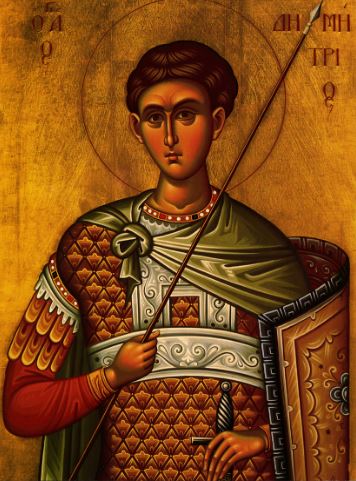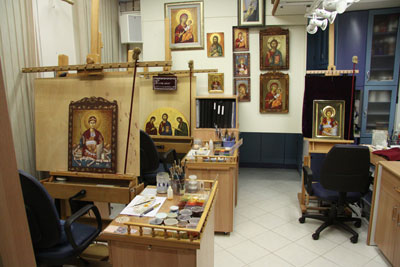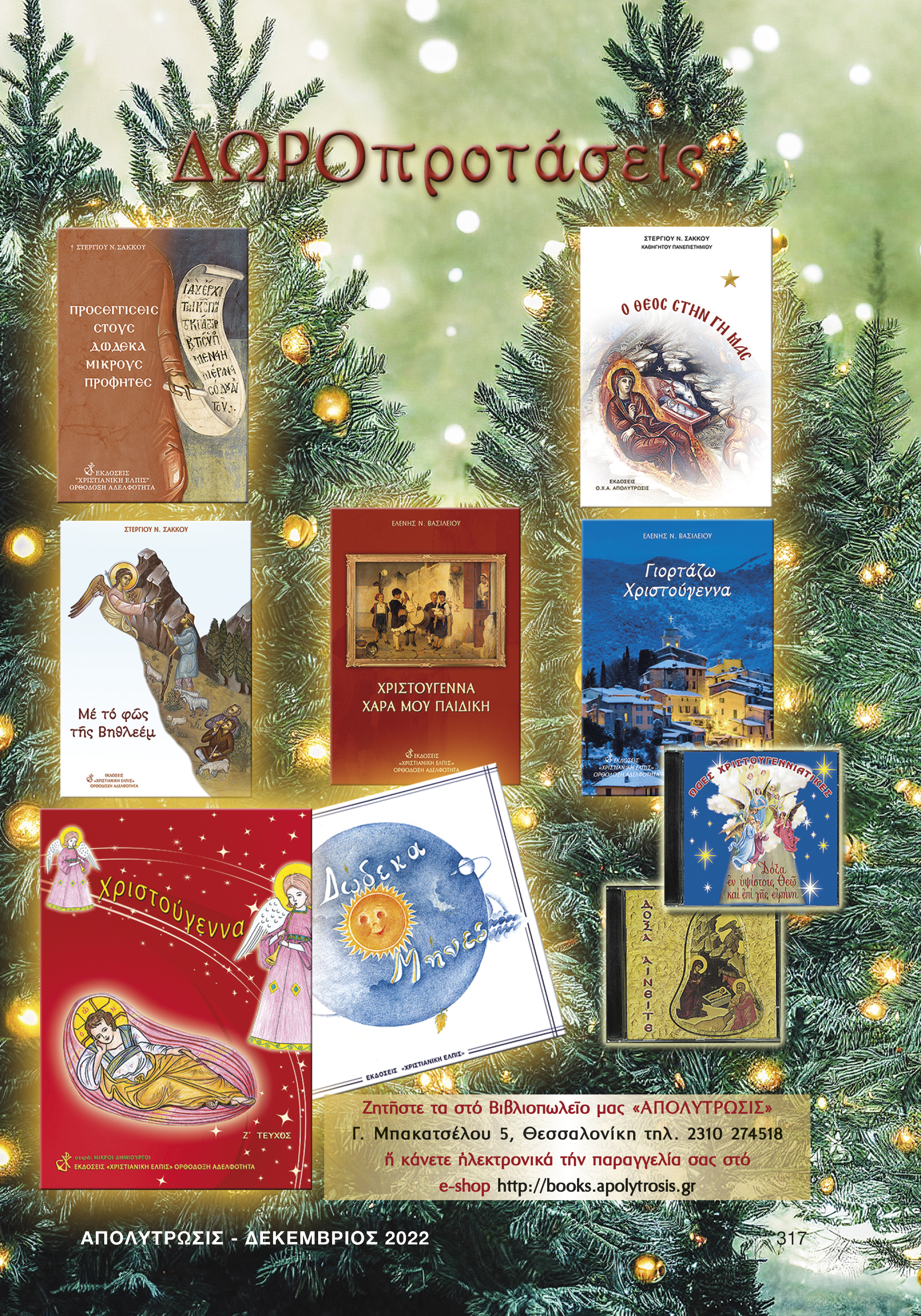Translated excerpts from the book:
Στεργίου Ν. Σάκκου [Read CV], Ὁ Κατηχητής τῆς Θεσσαλονίκης, ἐκδ. «ΧΡΙΣΤΙΑΝΙΚΗ ΕΛΠΙΣ» ΟΡΘΟΔΟΞΗ ΑΔΕΛΦΟΤΗΤΑ, Θεσ/νίκη 2000
Homily of Saint Gregory Palamas, On the Great Martyr, the Wonderworker, and the Myrrh-Streaming Dimitrios
His Ornament Was Faith

And what praise could be offered to Dimitrios—the one who adorns not only the whole world but even the heavens themselves? What, then, is his own ornament?
♦ His unconquerable faith.
♦ His measureless grace.
♦ The divine and enduring wealth of heavenly virtues, now stored above and added to the treasures of heaven as one more priceless jewel.
Even while he still lived among men, Dimitrios was already reaching toward heaven. He became himself a part of its eternal riches—a beauty belonging both to all the world and to the one beyond.
Foreseeing this, David blessed and exalted him, saying: “Blessed is the man who walks not in the counsel of the wicked, nor stands in the way of sinners” (Ps 1:1). He never allowed a single thought to enter his mind that was not devout. He never took a single step in a way displeasing to God. He kept pure and undefiled the grace he had received through Baptism in Christ. His will was perfectly attuned to the law of the Lord. It was for him the very book of God itself—like a tablet divinely inscribed, or like those stones written by the finger of God and set before all for their common good.
Beauty, Wisdom, and Purity
In the words of Isaiah, “Before the child knows how to refuse the evil and choose the good, he will refuse the evil, to choose the good” (Is 7:16). In the same way, Dimitrios, even in the bloom of youth, embraced the beauty of virginity. He devoted himself wholly to this treasure. He did all things to remain pure both in body and in soul. His way of life was already in heaven, even while his body still lived on earth. He advanced in likeness to the bodiless angels. In this struggle, all the other virtues stood beside him as companions, and above all the love to study the wisdom. Through discernment and purity he reached perfection. In a short time he brought to his youth the venerable maturity of old age. As Solomon teaches, “Understanding is gray hair to men, and a blameless life is ripe old age” (Wis of Sol 4:9).
He was, therefore, a gentle young man, radiant with beauty—not only outwardly and to the senses, but even more in the hidden depths of his soul. God, who looks upon the heart, beheld him and loved the spiritual and invisible beauty within him. He was pleased to dwell in him, to become one spirit with him, and to make him divine in every way. God once found David to be a man after His own heart. But Dimitrios, though still very young and not yet counted among the mature in years, He found exactly as His heart desired (see Acts 13:22)—“a workman who has no need to be ashamed” (2 Tim 2:15), one who fulfilled His commandments. God found in him, as Paul writes, “a chosen vessel to bear My name before the Gentiles and kings” (Acts 9:15). And, according to the Wisdom of Solomon, “a spotless mirror” (Wis of Sol 7:26), He received and reflected the transcendent and ineffable beauty.
I have heard that to him also that voice was revealed in secret: “Behold My servant, whom I have chosen, My beloved, in whom My soul is well pleased; I will put My Spirit upon him, and he shall proclaim justice to the nations” (see Is 42:1; Mt 12:18). He would transform others, making the unworthy worthy, so that he might be, as it is written, “as My mouth” (Jer 15:19). Others he would rebuke and bring to shame, showing them to be “vessels of wrath made for destruction” (Rom 9:22). And though these words were written concerning Christ, it is understood that through Him they are also bestowed upon those who live in perfect imitation of His example.









